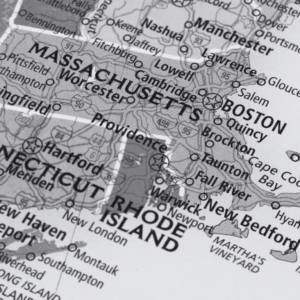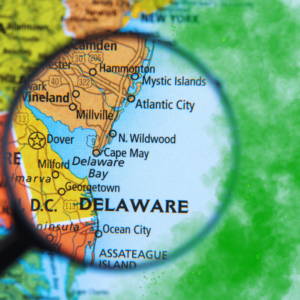Wanda James Urges Kamala Harris to Address Cannabis Monopolies

Wanda James, the First Black Person in the U.S. to Receive a Cannabis-Dispensary License, Wants Harris to Help Break Up Pot Monopolies
Wanda James stands as a trailblazer in the cannabis industry, not just for her accomplishments but for her relentless advocacy for equity and justice. As the first Black person in the U.S. to receive a cannabis-dispensary license, James has witnessed the potential for the marijuana industry to uplift marginalized communities, while also seeing the challenges it still poses—particularly monopolistic control that limits access for smaller businesses, especially minority-owned ones. Now, she’s urging Vice President Kamala Harris to address these critical issues.
Wanda James’ Call to Action for Kamala Harris
In a guest commentary for the Denver Post, Wanda James highlighted the significance of Vice President Kamala Harris’ pledge to legalize marijuana federally. “Vice President Harris has made it clear that her administration aims to ‘break down unjust legal barriers by legalizing marijuana nationally,’” wrote James. This, she argued, is not just a policy shift but a profound opportunity to address the legacy of the drug war that disproportionately affected communities of color.
However, James sees a growing threat to these efforts—monopolies in the cannabis industry that continue to undermine the values of equity and fairness. She believes that breaking up these monopolies should be a priority for Harris, whose platform emphasizes dismantling systemic barriers.
“Harris’ vision for breaking down barriers is critical, and her commitment to federal legalization offers an opportunity for the cannabis industry to reflect its true values: equity, access, and fairness,” James emphasized. “But this vision cannot come to fruition unless we first break up the monopolies and ensure that the market is open to all. Antitrust reform in cannabis is not just a legal necessity—it’s a moral one.”
The Journey to Simply Pure: Wanda James’ Roots in Cannabis Advocacy
Before becoming a prominent voice in the cannabis industry, Wanda James had an illustrious career in both business and politics. She served on former President Barack Obama’s national finance committee during his 2008 campaign, a role that honed her skills in navigating political landscapes and advocating for systemic change.
In 2009, she and her husband Scott Durrah opened Simply Pure, one of the first Black-owned cannabis dispensaries in Colorado. This was a landmark moment not only in her career but in the history of the cannabis industry. James’ journey into the cannabis space was deeply personal—her brother’s experience with the criminal justice system due to non-violent cannabis-related charges fueled her passion for reform. She saw firsthand how the War on Drugs devastated Black and Brown communities and sought to use her platform to advocate for justice.
Colorado’s Cannabis Industry: Big Players and Limited Access
James’ success in the industry has not blinded her to the ongoing issues, especially in her home state of Colorado, where cannabis legalization has been hailed as a success. Colorado was among the first states to legalize recreational cannabis in 2012, creating what many view as a model for other states. However, James argues that beneath the surface, Colorado’s cannabis market is marred by inequity and monopolistic practices that benefit a select few.
When Colorado first legalized medical marijuana, the state required businesses to operate under a model of vertical integration. This meant that companies had to control cultivation, processing, and retail under one umbrella. While this rule was later relaxed, its legacy remains. Large corporations that had the resources to comply with these requirements now dominate the market, leaving little room for independent or minority-owned businesses to thrive.
“Independent producers are still forced to sell their products through vertically integrated entities that control the distribution channels,” said James. “This setup creates artificial barriers to entry for smaller players, many of whom are minority-owned businesses. The market remains dominated by the same entities, acting as gatekeepers, and stifling innovation and competition.”
This dynamic makes it incredibly difficult for new and diverse entrepreneurs to enter the market. Even though cannabis has been legalized in many states, the industry’s financial and regulatory burdens often prevent smaller businesses from succeeding. In fact, many of the largest cannabis companies today have expanded their control over the entire supply chain, from growing to retail, further squeezing out smaller players.
The Urgent Need for Reform
James believes that Colorado—and by extension, the entire U.S.—needs to implement serious reforms to address these monopolistic structures. Without breaking up the monopolies that currently dominate the cannabis space, the benefits of federal legalization could be lost on the communities that need it most.
This is where James sees Vice President Kamala Harris playing a pivotal role. As someone who has consistently advocated for federal marijuana legalization, Harris is uniquely positioned to push for reforms that address monopolistic control.
“It’s time for true reform—not just at the federal level, but in our own backyards,” James wrote. “As we look toward a future where cannabis is legal nationwide, let’s ensure that monopolies and gatekeeping don’t determine who gets to succeed. Colorado, we must lead the way in building a cannabis market that works for everyone.”
James’ vision for a more inclusive cannabis industry goes beyond mere legalization. It requires a restructuring of the current market to ensure that smaller businesses, particularly those owned by people of color, can thrive. Federal legalization alone will not solve the problem; antitrust reforms and state-level changes are also necessary.
A More Inclusive Cannabis Future
Wanda James’ advocacy underscores a broader conversation happening in the cannabis industry—one that goes beyond profit margins and market expansion to consider issues of justice, equity, and fairness. The cannabis industry, which has been born out of a substance once criminalized, has the potential to uplift communities harmed by the War on Drugs. But that potential cannot be realized unless there is a concerted effort to dismantle monopolistic control and open the market to new players.
James remains optimistic that with the right political leadership—especially from figures like Vice President Harris—the cannabis industry can become a model of equity. But it will take more than federal legalization. It will require a rethinking of who gets to participate in this new frontier of American business.
As federal legalization continues to be debated, it’s essential that voices like Wanda James’ are heard. Her call for reform is not just about opening more businesses but about creating a system that reflects the values of justice and fairness that legalization proponents have long championed.
Wanda James, through her leadership and advocacy, has shown that the cannabis industry can—and should—be a tool for dismantling systemic inequalities. But without addressing monopolistic practices and ensuring greater access for minority-owned businesses, the promise of cannabis legalization may fall short. With Vice President Kamala Harris at the forefront of federal legalization efforts, James hopes that the industry will become a beacon of equity, allowing all to participate in its growth and benefits.











